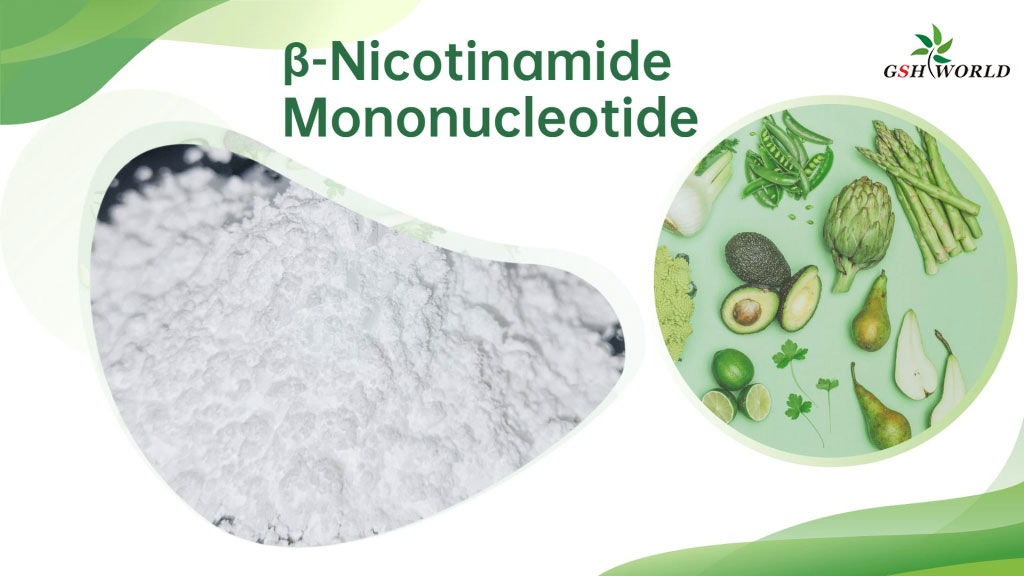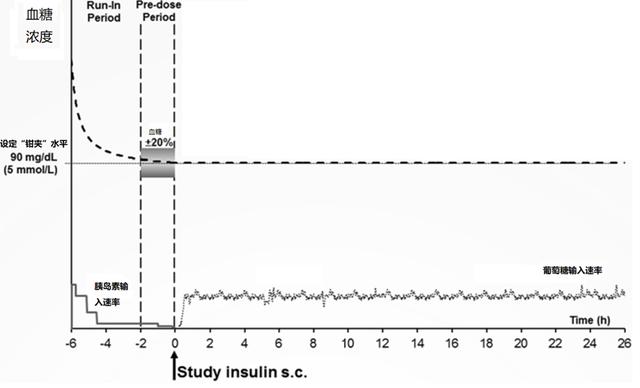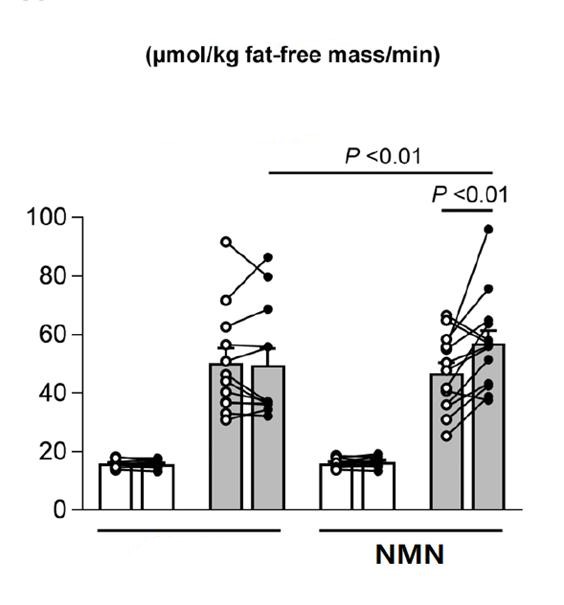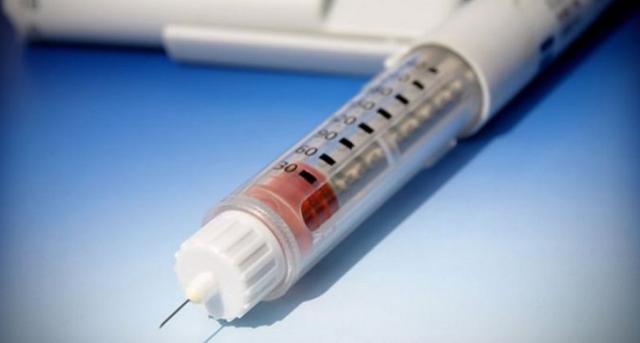Science publishes clinical trial results, supplementing NMN can enhance insulin sensitivity
About one in 10 people has diabetes, and more than 90% of the cases belong to type 2 diabetes, that is, diabetes caused by insulin resistance.
Therefore, increasing the body’s sensitivity to insulin has become a natural treatment approach.
In 2021, researchers from the University of Washington School of Medicine found that oral supplementation of NMN (nicotinamide mononucleotide) can enhance insulin sensitivity, a study published in the top academic journal Science.
How to detect the sensitivity of the human body to insulin? The recognized “gold standard” in academia is the hyperinsulinemic glucose clamp (HEC).
Among them, “high insulin” refers to the high insulin levels in the subjects during the test, while “glucose clamp” refers to the glucose concentration in the subjects being fixed at a normal level like being “clamped”.

Insulin plays a role in lowering blood sugar in the human body. The higher the insulin sensitivity, the stronger the body’s ability to lower blood sugar;
In other words, at a certain insulin level, subjects who can withstand a larger amount of external glucose input and maintain normal blood sugar levels have higher insulin sensitivity,
which is the core principle of the high insulin normal glucose clamp method.
In actual testing, researchers first inject insulin to maintain high levels of insulin in the blood of the subjects;
The purpose of doing this is to inhibit the secretion of insulin by the subjects themselves and the output of liver glucose,
so that both insulin and glucose levels in the blood are completely controlled by exogenous injection.
Subsequently, the researchers will continuously inject insulin and glucose, and continuously regulate the rate of glucose input to maintain the subjects blood sugar at normal levels.
As mentioned earlier, once blood sugar stabilizes, the rate of external glucose input (which is also the rate at which the body consumes glucose) can reflect the insulin sensitivity of the subject.

The subjects in this clinical trial are 25 higher-weight person women who are heavier person or heavier person and have symptoms of pre diabetes.
Unknowingly, they were divided into an experimental group (13 people) and a placebo group (12 people). After 10 weeks of oral NMN at 250mg/day,
the experimental group showed a 25% increase in muscle insulin sensitivity compared to the control group,
which is reflected in the experimental data as a higher glucose consumption rate.

Furthermore, the researchers observed that supplementing NMN enhanced insulin related signaling pathways in the muscles of the subjects,
specifically manifested in higher total AKT and mTOR levels and phosphorylation levels in the experimental group’s muscles.
In summary, this clinical trial found that oral administration of 250mg/day of NMN for 10 weeks can enhance insulin sensitivity,
with specific effects similar to weight loss of 10% in heavier person individuals or receiving 12 weeks of treatment with traglitazone (an insulin sensitizer).
This discovery may enable NMN to play a role in the treatment of type 2 diabetes in the future.
Reference:
- 1. Yoshino, M., Yoshino, J., Kayser, B. D., Patti, G. J., Franczyk, M. P., Mills, K. F., Sindelar, M., Pietka, T., Patterson, B. W., Imai, S. I., & Klein, S. (2021). Nicotinamide mononucleotide increases muscle insulin sensitivity in prediabetic women. Science (New York, N.Y.), 372(6547), 1224–1229. https://doi.org/10.1126/science.abe9985
- 2. Heise, T., Zijlstra, E., Nosek, L., Heckermann, S., Plum-Mörschel, L., & Forst, T. (2016). Euglycaemic glucose clamp: what it can and cannot do, and how to do it. Diabetes, obesity & metabolism, 18(10), 962–972. https://doi.org/10.1111/dom.12703





SUyodItmWg
idOnwMYNZhp